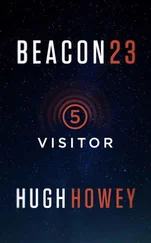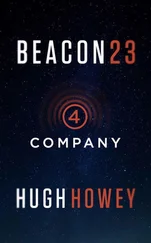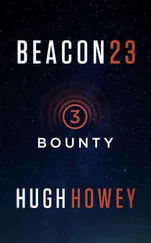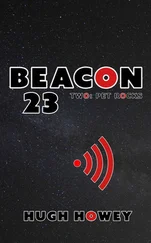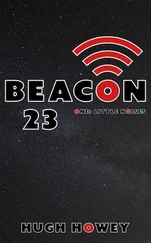After enlisting, they stationed me at Fort Morgan. This was years before that unfortunate incident at Wounded Knee Creek. It was before the world heard of the Ghost Dance that was driving the natives mad. What we would one day call the Messiah Craze, and would lodge in my ear like a starving tick, had yet to cause trouble on those plains.
Fort Morgan was a lot like the endless Confederate encampments I had endured while serving. The only difference was that the fort didn’t relocate in the morning; it had far fewer men moaning and dying in tents; and it was less prone to abandonment at night. I reckon Colorado was a long way for a man to run home from. Most soldiers out there had already done their running, and Fort Morgan was where they’d ended up. Their final resting spot was a scrabble of tents and rickety shacks ringed by a shoddy wall of pine stumps where the best that could be said was they fed you twice a day. Two muddy tracks came in straight as an arrow from the east, cut right through Fort Morgan, and disappeared out the other end toward the west. In one direction, a flat nothing where only the dust stirred and a creek petered out and was swallowed by the cracked earth; in the other, ancient and impossibly tall mountains stood with white tops like old men. The hell in between was our home.
In the spring and all through the summer—when the gray brows on those granite men to the west receded with the melts and the creek raged—an endless caravan of poor people with rich dreams appeared along the twin-rutted road from territories east. They passed through on their way to California, and our sworn duty at Fort Morgan was to see that their scalps moved right along with them.
Those were the melts and the busy months—spring and summer. Autumn and winter were a harder time at the fort. Men took to cards and more drink than the good Army allowed, and each of us spent our share of nights in the pen sobering up and feeling like asses for mistakes we barely remembered. Those were the hard months—and in the eighteen hundred and sixty-eighth year of our Lord, they got suddenly harder.
I was out with Private Collins taking in a pair of deer when Lieutenant Randall took the sickness. The lieutenant had been away from the fort for near on eight weeks. A trail scout, he spent most of his time up in the hills living in a tent like a native and looking for less damnable passages between those brutish mountains. He was always a bit peculiar, but nothing to presage him wandering back into camp and murdering five good men in cold blood. Yet that’s just what he did; four of his fellow enlisted men were shot dead, plus a half-Indian cook named Sammy. Randall shot each of them in the head before someone managed to wing him and put an end to the slaughter. Why they didn’t kill him on the spot, I’ll never know.
Private Collins and me returned from our hunt too late to help with anything but the digging. Saw the aftermath, though: brains and skull and hair that took me right back to the war. They was already mopping it up, and so we were handed shovels. Now, nobody consulted me for my legal expertise, but Justice would’ve been served by shooting Lieutenant Randall right there on the spot. But the good Army of the United States of America has its own sense of justice. There are trials and spectacles afforded a man before his chest is riddled by a firing squad. There are nights spent in the pen. Which is how I found myself nursing a blister from the shoveling, sitting there on a hard bench outside the holding cell, taking my shift at watching Lieutenant Randall so that he weren’t shot dead by some enterprising fellow before dawn.
On the bench across from me was my hunting partner and shovel mate, Private Collins. I surmised that his presence was to make sure I didn’t scratch that itch of justice, either. I was keeping an eye on him and he on me, and both of us on the lieutenant. Randall, meanwhile, snored and babbled like only the guilty and outright crazy could manage on the eve of their probable execution. What could make a man break camp one morning and ride in to shoot his comrades in their skulls? Morbid curiosity had me itching to know. I tried to discern some of what he was saying in his sleep—but couldn’t make out a word.
“That’s Red talk,” Collins told me.
I turned to the private and realized I’d been leaning forward on my bench, my face scrunched up in concentration. I tried to relax. “You understand what he’s mumbling?” I asked, keeping my voice down.
Collins chewed on the end of an unlit cheroot, and then spat a dab of tobacco between our feet. “Arapaho,” he said, matter-of-factly. Private Collins had that air about him, that supreme confidence that got on some men’s nerves. He had also bagged both deer that morning, firing before I had the chance. Still, I liked him.
“What’s he saying?” I asked. The only Indian I recognized was their war cries, when the hair on the back of my neck was translation enough.
Collins shrugged and sucked on his cigar. “Used to take an Arapaho whore in Mason,” he said. “I know what their language sounds like, can catch a few words, but unless he starts talking about how thick my member is…” He smiled. And not for the first time, I wondered why I liked this man yet despised so many others.
“Why the hell is he dreaming in Arapaho?” I asked, still whispering. It was strange that I wanted the man in that pen dead but cared not to disturb his sleep. Collins turned toward the dimly lit cell.
“Reckon he done and gone native. Happens. Too much time up in the hills. Or maybe he’s been heading into Mason and taking up with my whore.” Collins laughed, but Randall didn’t stir.
I settled back on my bench and marveled at a man who could sleep through what might be the last night of his life. More than justice, I was thirsty for answers. I decided, come morning, I would ask the major if Collins and I could go hunting for something up in those hills besides deer.
Major Jack Lawson was a peculiar leader of men. Part eccentric and part mountain man, he was the reason Fort Morgan had a grand piano and a small library but no decent latrine. Music and books—and somehow shitting in bare holes in the dirt—were all apparently good for our souls.
Turned out the major was just as curious about Randall’s sudden madness as we were. He gave us his blessing to ride out in search of clues.
Collins knew where Randall had set up camp the previous autumn, and so we followed an angry stream up through the pines and aspens and cottonwoods that made up the scruff around the old mountain’s neck. Stumbling on a native camp, it took a moment to realize that it was in fact Randall’s place. An army-issue tent lay draped across a lean-to of woven branches. A half-finished structure of limbs and sticks jutted up nearby, a rough circle with a tall pole in the center. Around the camp, every tree within a hundred feet had been felled, the trunks radiating outward as though they’d been knocked over by a terrible blast. Gnawed stumps stood out everywhere. I noticed how cleanly they’d been hewn, not an errant strike to be seen, none of the work of a madman.
“Took down enough trees for a second Morgan up here,” I remarked. I peered inside Randall’s abandoned tent and found nothing amiss. The bedroll was laid out like it expected to be slept in, a set of pots and cutlery innocently nestled in one corner. It smelled of leather and sweat and man, even with the air cold enough to fog my breath. Collins poked a smoldering log in the fire pit with a stick and was rewarded with a flight of embers, like bees startling from a hive.
“Don’t think he was after the timber,” Collins said. He left the pit alone and headed past the tent to the half-completed structure that’d made me think this was an Indian campsite. Shielding his eyes, he glanced up at the autumn sky. “I reckon he was out to fell the shade, is what.”
Читать дальше

